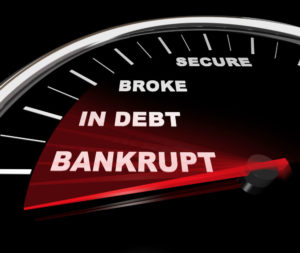If you are interested in learning how to stop foreclosure, there are many different steps that you can take to protect yourself before your house is taken away from you.
Far too many people wait until it is too late to stop foreclosure and expose themselves to the loss of one of their greatest investments.
Some of the common methods available to stop foreclosure include asking for a loan modification, filing a lawsuit, or filing for bankruptcy.
If you have gotten behind on your payments for your home and are curious about whether or not you can stop foreclosure, you might be able to save your home by taking action sooner rather than later. Your first option is usually to request a loan modification or alternative workout option directly with the lender.
You could delay the foreclosure process or potentially stop it entirely by filing a lawsuit against your lender and you may be able to take advantage of the automatic stay provision of filing for bankruptcy. An automatic stay when filing for bankruptcy stops foreclosure immediately. The lender, however, can still take action to file a motion for stay relief.
The lender might try to get the stay lifted by asking for permission directly from a court to move forward with a foreclosure. Even in the event that this is approved, the foreclosure may be delayed by at least one month or more.
Using Bankruptcy to Stop Foreclosure
If you intend to stay in your home, a Chapter 13 bankruptcy may be the right method for you because this will allow you to restructure your debts. You must repay some of these debts in full and others in part over up to five years through a repayment plan.
 You might be able to stay in your home and keep your home to stop foreclosure because you will be eligible to repay any overdue mortgage payments with the plan.
You might be able to stay in your home and keep your home to stop foreclosure because you will be eligible to repay any overdue mortgage payments with the plan.
You may be able to eliminate some debts entirely like second and third mortgages that are underwater because they are classified as unsecured loans.
You should speak directly with an experienced bankruptcy attorney to figure out whether or not this applies to your case.
You may also receive some benefits to stop foreclosure by filing for a Chapter 7 bankruptcy.
If you’ve been through foreclosure already, the Chapter 7 bankruptcy would remove your liability for that mortgage debt, meaning you would not be responsible for any deficiencies. You may be able to delay foreclosure by using loan modification.
If your loan modification application is granted by the lender, you must keep up with the payments to stop foreclosure. If your lender is pursuing other means of attempting to foreclose, in which the foreclosure is totally outside of the legal court system, you may be eligible to end the foreclosure by filing a lawsuit affecting the lender. If that foreclosure is already judicial before the close of a foreclosure sale, you might have already surpassed your eligibility get your case in court.
To be successful in a lawsuit against a lender to stop foreclosure, you will need to argue to the court’s satisfaction that the foreclosure shouldn’t happen because the foreclosing lender violated the state’s homeowners’ bill of rights, didn’t remain in compliance with mediation requirements, was unable to prove that it owns the promissory note, made an egregious error, or failed to follow all process steps.
In all of these situations, talking to an experienced consumer lawyer is necessary to figure out your next steps. The support of a dedicated attorney is extremely important for your future. Talk to the lawyers at McDonald Worley today to learn more.
